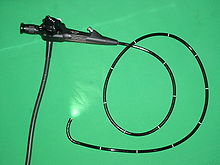Autoimmune Polyendocrine Syndrome Type 1

Autoimmune polyendocrine syndrome type 1 (APS-1), is a subtype of autoimmune polyendocrine syndrome (autoimmune polyglandular syndrome) in which multiple endocrine glands dysfunction as a result of autoimmunity. It is a genetic disorder inherited in autosomal recessive fashion due to a defect in the AIRE gene (autoimmune regulator), which is located on chromosome 21 and normally confers immune tolerance.
Signs and symptoms
Autoimmune polyendocrine syndrome type 1 symptoms and signs include the following:
- Chronic mucocutaneous candidiasis
- Hypoparathyroidism
- Autoimmune adrenal insufficiency
- Ectodermal Dystrophy (skin, dental enamel, and nails)
Additional manifestations include
- Hypogonadism
- Vitiligo
- Alopecia
- Malabsorption
- Pernicious anemia
- Cataract
Genetics
Autoimmune polyendocrine syndrome type 1 is inherited in an autosomal recessive manner. It is due to a defect in the AIRE gene (which encodes a protein called autoimmune regulator) mapped to the 21q22.3 chromosome location, hence chromosome 21.
Pathophysiology
In autoimmune polyendocrine syndrome type 1 mechanism one finds that the maintenance of immunological tolerance plays a role. Furthermore, upon looking at the AIRE gene, one finds at least 90 mutations in the gene, in those affected with this condition.
Autoimmune polyendocrine syndrome type 1 mechanism also indicates that affected individuals autoantibodies have considerable reactions with both interferon omega and interferon alpha.
Diagnosis

In terms of diagnosis for this condition, the following methods/tests are available:
- Endoscopic
- CT scan
- Serum endocrine autoantibody screen
- Histologic test
Treatment
Autoimmune polyendocrine syndrome type 1 treatment is based on the symptoms that are presented by the affected individual, additionally there is:
- Hormone replacement
- Systemic antifungal treatment
- Immunosuppressive treatment
See also
- Autoimmune polyendocrine syndrome type 2
- IPEX syndrome
- Autoimmune polyendocrine syndrome